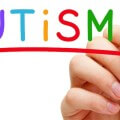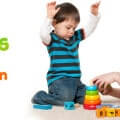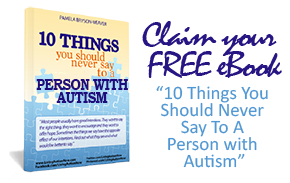Ever experienced having someone’s eyebrows raised over your autistic child?
Do you feel insulted or hurt?
It is a common occurrence among many communities across the globe for people to not instantly understand what your child is going through with this ordeal. However, you, as one who has direct knowledge about Autism Spectrum Disorders, have all the power in your hand to make people understand about it. The challenge is how to do it nicely without offending the other party.
 As we all know, some people that those living in the spectrum are dysfunctional and live in their own world. These observations, however, are but a minute part of the spectrum of disorders that the autism genome carries. If your child or a sibling has ASD, educating those around you can be done in a positive manner. You can start talking to neighbors about it. If you have community forums, joining in one and making your intentions known can also elicit awareness among those who surround your loved one with Autism.
As we all know, some people that those living in the spectrum are dysfunctional and live in their own world. These observations, however, are but a minute part of the spectrum of disorders that the autism genome carries. If your child or a sibling has ASD, educating those around you can be done in a positive manner. You can start talking to neighbors about it. If you have community forums, joining in one and making your intentions known can also elicit awareness among those who surround your loved one with Autism.
Start by educating them on the nature of the disorder, that is, Autism is neurological and not psychological as what others believe it to be. Add the fact that it is a spectrum of disorders meaning, ASDs have different levels of severity and not necessarily like Simon Lynch on Mercury Rising or Dustin Hoffman in Rain Main. Before you do this, it is imperative that you harness your knowledge about the spectrum of disorders that Autism carries to ensure that you get your point across as factually as possible. This could mean researching about your child’s diagnosis, interacting with medical professionals assessing his or her cognitive, language, developmental and social skills, and so on.
It is important to point out the challenging ways like making eye contact, showing appropriate emotions, and other manifestations affecting their social skills. Most kids with autism also has trouble accepting change and when faced with such, they can easily feel stressed and agitated making it hard for them to reach out and be understood. It is like being in the South of France with nary any idea about the language. It is how their brain works and they cannot help it, one puzzle no one has the obvious answer as to why. It is important to let people understand that an autistic’s reaction or lack thereof to certain stimuli is part and parcel of the disorder. Some manifests differently than others but, all the same, this neurological condition can bring in different reactions.
Be as factual as possible in your points. If talking to neighbors or friends, make them understand the diagnosis provided by your child’s doctor and the observations you have gathered over time. Along with facts, your attitude also plays a big role in making people that surrounds your child or sibling with autism understand what you and your child/sibling is going through. Not will this improve their interaction to people with ASDs, this will also increase their awareness and be able to relay this to others. Besides, word of mouth has always been an effective manner of raising awareness.
Photo credit: http://www.4-roads.com/Social/Blog/social-networks-vs-online-communities





